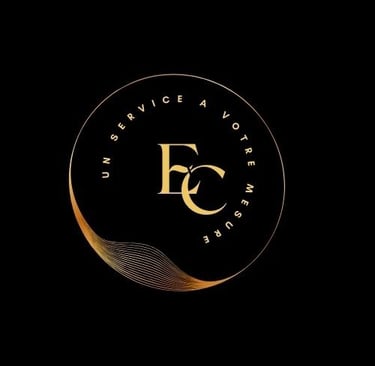Navigate to Success: Why SMBs Benefit from Outsourcing Marketing Intelligence
Discover how outsourcing marketing intelligence can transform your SME. Save time, anticipate trends, and boost your performance with a strategy tailored to your specific needs.
MARKETINGVEILLE MARKETING
LYDIE GOYENETCHE
12/29/20244 min read


Why Elon Musk, Beyoncé, and Your Neighbor Should Embrace Marketing Monitoring
Hiring a marketing consultant has become a go-to strategy for companies aiming to stand out in a competitive market. These professionals fulfill various roles: analyzing a company's needs, designing tailored marketing plans, and supporting the implementation of effective strategies. Whether as freelancers or full-time employees, their mission is to provide strategic advice backed by expertise.
With their diverse skill set, marketing consultants excel in strategy development, project management, and competitive monitoring—crucial for spotting trends early. Many professionals are transitioning into this field, drawn by its dynamic nature and the opportunity to work with businesses of all sizes. Whether through specialized training or hands-on experience, becoming a marketing consultant requires a deep understanding of market trends and digital tools.
This article explores how a marketing consultant can turn your strategy into a competitive advantage and why marketing intelligence is essential for staying ahead.
Elon Musk and Technology Monitoring: Ignoring the Future Comes at a Cost
Elon Musk, a visionary obsessed with Mars and electric cars, never lets an innovation slip by. Tesla invests heavily in technology monitoring, allowing it to anticipate industry shifts before anyone else. The result? Leadership in battery technology and autonomous driving, while competitors like Ford scramble to keep up. The takeaway: If you don’t track technological advancements in your industry, be prepared to play catch-up.
Beyoncé and Trend Monitoring: Staying Ahead Means Staying Relevant
When Beyoncé dropped her surprise album Lemonade, she tapped into the cultural zeitgeist, riding the wave of social and cultural conversations. This wasn’t luck but the result of meticulous trend monitoring across media and social networks. The outcome? Unmatched success and cemented dominance. Could your business replicate this? Maybe not with music, but by tuning in to consumer sentiments, you could become the Beyoncé of your industry.
Marketing and Technology Intelligence: The Key to Successful Product Launches
Marketing and technology intelligence play a vital role in launching new products and services. These practices help businesses identify emerging trends, assess competition, and better understand consumer expectations. With robust competitive intelligence, companies can craft marketing plans aligned with market realities.
Success Stories: Tesla and Apple—Two Pioneering Visions
Under Elon Musk’s leadership, Tesla exemplifies the power of strategic technology monitoring. By anticipating advancements in battery technology and autonomous driving, Tesla has not only innovated but also segmented its market, attracting high-end, eco-conscious customers. The result? Market dominance, while rivals like Ford and GM struggle to catch up.
Apple provides another iconic example. By analyzing the weaknesses of Nokia and BlackBerry, Apple leveraged competitive intelligence to revolutionize the mobile phone industry with the iPhone. A well-crafted marketing strategy helped Apple not just capture an audience but also create an entirely new demand.
Failures: Kodak and Segway—Costly Lessons
On the flip side, neglecting technology monitoring can be disastrous. Kodak, despite pioneering digital photography, failed to capitalize on its innovation for fear of cannibalizing its film business. The consequence? Companies like Canon and Sony took the lead, relegating Kodak to the sidelines.
Similarly, Segway, though innovative, flopped due to poor market segmentation. Effective marketing monitoring could have revealed its mismatch with consumer expectations regarding practicality and price.
Why Integrate Marketing Monitoring into Your Strategy?
Effective marketing and technology intelligence help businesses refine strategies, seize market opportunities, and optimize product launches. Whether innovating like Tesla or anticipating consumer expectations like Apple, these practices reduce risks and maximize success.
Zara and Coca-Cola: How Competitive Intelligence Drives Sales
At Zara, competitive intelligence is an art. The brand meticulously analyzes runway trends and competitor campaigns, swiftly translating insights into new collections. The outcome? Exceptional customer loyalty and revenue growth that leaves competitors envious.
Coca-Cola, meanwhile, keeps a close watch on Pepsi, particularly its sustainability initiatives. By reacting swiftly, Coke ensures it never lags behind its rival.
Your Neighbor Antoine: The Cost of Ignoring Market Trends
Let’s talk about Antoine, our neighborhood entrepreneur. He opened a bakery selling traditional baguettes—right next to two organic grocery stores and a vegan cafe. Within months, foot traffic dwindled. Why? Because he failed to notice that his neighborhood had shifted toward sourdough and health-conscious alternatives. Even a basic market analysis could have saved him from this misstep.
Bill Gates and Data: Why Monitoring Is a Profitable Investment
Bill Gates famously said, "Data is the new oil." Marketing intelligence turns raw data into strategic gold. Consider Nestlé: by closely monitoring food trends like veganism, they expanded their plant-based product line, boosting sales by 20% in two years. The cost of market intelligence? Far less than missing a multi-million-dollar opportunity.
Why Outsourcing Marketing Intelligence Is a Smart Move
While marketing intelligence is essential, it can be time-consuming and resource-intensive, especially for SMEs. This is where specialized consultants come in. Outsourcing monitoring on a subscription basis grants access to expert insights and advanced tools often unavailable in-house.
Consider an agri-food SME that invested €1,500 per month in outsourced market monitoring. Within three months, they identified a rising trend in protein snacks and launched a new product line, resulting in a 12% annual revenue increase.
The Added Value of a Marketing Intelligence Consultant
Outsourcing intelligence isn't just about delegating tasks—it enhances strategic decision-making. A consultant not only tracks trends but also interprets data and delivers actionable insights.
For example, Nestlé collaborates with external firms for food trend monitoring. This partnership helped them anticipate the veganism surge, leading to the launch of Garden Gourmet and a 20% revenue boost in two years.
Nike, on the other hand, leverages agencies for digital trend analysis, leading to innovative initiatives like customizable shoes via mobile apps, increasing customer engagement and online sales.
Similarly, Peugeot outsources competitive intelligence to keep up with automotive advancements, ensuring competitiveness against Tesla and Volkswagen.
Even in the beauty industry, giants like L'Oréal use tools like Brandwatch to analyze consumer sentiment, enabling them to launch inclusive, eco-conscious products aligned with market trends.
The True Cost of an In-House Marketing Intelligence Department
For an SME, maintaining an internal intelligence team is costly. Estimated annual expenses include:
Salaries:
Senior monitoring manager: €40,000-€60,000
Junior marketing analyst: €25,000-€35,000
Total (2 employees): €65,000-€95,000
Tools & Training:
Market analysis software: €10,000-€20,000
Employee training: €4,000-€10,000
Office costs & taxes: €18,000-€33,500
Total cost: €97,000-€158,500
By contrast, an external consultant charges about €605 per day. For targeted projects:
One-off (10 days): €6,000-€8,000
6-month engagement (10 days/month): €36,000-€48,000
Conclusion: Can Your Business Survive Without Marketing Intelligence?
Marketing monitoring isn’t just for big corporations—it’s a necessity for businesses of all sizes. Whether you’re Tesla, Beyoncé, or Antoine the baker, staying ahead of trends means staying competitive. If you lack time or resources, outsourcing could be the key to elevating your strategy. So, will you become a marketing visionary or be left behind like Kodak?


EUSKAL CONSEIL
0033782505766
euskalconseil@gmail.com
This website uses only Plausible Analytics, a privacy-friendly web analytics tool.
No cookies are used, and no personal data is collected from visitors.
The system is fully compliant with the General Data Protection Regulation (GDPR), the ePrivacy Directive, and CNIL recommendations.
You can read more about Plausible’s data policy here: https://plausible.io/data-policy